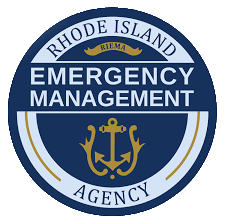Threats & Hazards
There are different types of natural, technological, and man-made threats and hazards that could impact the State of Rhode Island at any time. Know your risk and find out what you can do to prepare before, during, and after a threat or hazard.
We cannot stop threats and hazards from happening, but if we are prepared, damage and loss can be lessened or prevented.
Natural
A natural hazard is an event that occurs naturally, negatively affecting people and/or the environment. While there are several natural hazards that occur and affect thousands of people each year throughout the United States, some are more likely to affect Rhode Island that others such as:
Technological/Accidental
Technological threats and hazards are becoming more and more commonplace due to the ever-increasing advances and dependencies on technology. Technological hazards that are most likely to occur in Rhode Island are:
Man-Made
A man-made hazard is a threat that has an element of human intent. The man-made threat that is most likely to affect Rhode Island is a Terrorist threat.
